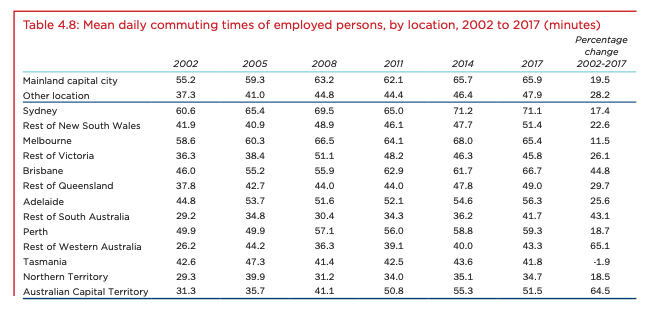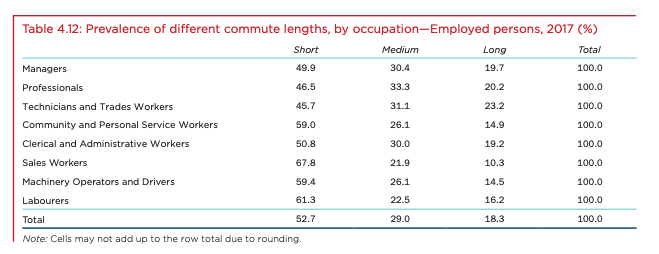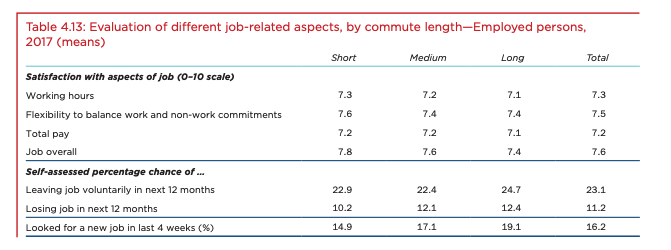One in three organisations make monthly mistakes with payroll and the average Australian is now spending 4.5 hours per week in transit. Little things like this can really add up.
If you continuously found mistakes in your monthly pay cheque or your employer kept paying you late, would you start to think about leaving your job? What if you had to spend 4.5 hours of your week sitting on a cramped bus or packed like sardines in peak hour traffic?
It’s not a ‘what if?’ scenario for most Australians, it’s a reality.
Payroll mistakes
Getting payroll right isn’t always easy. As HRM reported last week, there are many steps that go into paying a single employee for a shift and there’s plenty of room for administrative errors, but it is surprising to find out just how common these errors are.
One in three organisations (33 per cent) admit to making a mistake in every single monthly pay run and 21 per cent do the same every quarter, according to new data from the Australian Payroll Association.
Interestingly, in a lot of instances (45 per cent) the mistakes aren’t picked up by payroll managers, but by the employees themselves.
While larger companies are more likely to make payroll mistakes, smaller businesses have their own problems when it comes to paying their staff correctly.
Twenty per cent of organisations with 1-10 employees admit to making late payments to staff, compared to just 11 per cent of larger organisations. And 22 per cent of these ‘micro-businesses’ admit to making late superannuation payments, while only 3 per cent of organisations with over 1,000 employees had the same issue.
The most common cases of underpayment occur in the social assistance, healthcare and disability services sectors – all three admit to making payroll mistakes 43 per cent of the time – and these industries also had the highest percentage (12 per cent) of late payments.
If employees are constantly having to remind their employer to pay them the correct amount (or on schedule), it’s only a matter of time before they’ll say “enough is enough”.
“Getting paid late or being paid the wrong amount has a huge impact on employer and employee trust. It can also reduce employee morale which is a contributing factor for excessive turnover in organisations,” says Australian Payroll Association CEO Tracy Angwin.
“With more companies facing employee underpayment scandals, it has become crucial for organisations to minimise the incidence of payroll errors. Accurate pay and entitlements involve making not only the correct pay and award calculations, but accurate leave entitlements and superannuation contributions within the correct timeframe.”
Longer commutes
Speaking of things that make people want to quit, workers with longer commutes are starting to think about changing jobs, according to recent data collected in the 2019 Household, Income and Labour Dynamics in Australia (HILDA) survey, based on 2017 data.
The survey – which provides annual insights from more than 17,000 Australians – found that workers are spending an average of 4.5 hours commuting to and from work each week. That’s an increase of 23 per cent since 2002.
The worst city for commutes is Sydney, with a daily average of 71 minutes, followed by Brisbane (67 minutes) and Melbourne (65 minutes).

Eighteen per cent of respondents have a commute of 2 hours or more, compared to 12 per cent of those surveyed in 2002.
Commute times were not only dependent on infrastructure (or lack thereof) or population size (although both would be major factors), it also depends on the type of work the person is engaging in.
On average, technicians and trade workers have to travel the furthest while sales workers had the shortest commutes. The obvious reason for the discrepancy is that a lot of trade workers are required to work at different locations each day.

The ripple effect
The research found that those facing longer commutes were more likely to want to change jobs. In the last month:
- 14.9 per cent of people with a short commute (less than 1 hour) looked for a new job
- 17.1 per cent of people with a medium commute (1-2 hours) looked for a new job
- 19.1 per cent of people with a long commute (2 hours of more) looked for a new job
And employees aren’t leaving their frustrations at the door when they finally do get to work. HILDA’s research shows that long commutes affect employees’ overall satisfaction with their jobs. Twenty-four per cent of long commuters are considering leaving their jobs in the next twelve months and feel less satisfied with the hours worked, salaries and ability to work flexibly than those with shorter commute times.

The obvious reason these longer hours commuting are impacting worker’s wellbeing is because it’s eating into their leisure time. But researchers from RMIT and the University of Melbourne, Liang Ma and Runing Ye, have also identified other potential issues.
“Lengthy commuting also potentially increases exposure to nuisances and hazards such as traffic noise, crowds, congestion, pollution and uncomfortably hot or cold conditions. These can cause physical or emotional distress and have a direct influence on people’s physical and mental health,” they write in an article for The Conversation.
The suggestions they put forward include the creation of polycentric cities (Sydney is attempting to make this happen by encouraging businesses and the general public to consider Parramatta as a second CBD) and the promotion of alternative modes of travel, like cycling and walking. And with 55 per cent of respondents living within 10 kilometres of their office and 28 per cent within the same postcode as their office, this seems like the easiest and cheapest remedy to city-wide congestion.
You can see how you average commute compares by taking a look at this tool developed by The Conversation.
It’s important that your team has the right skills to properly manage stress to meet the challenges of their professional lives. Learn more from AHRI’s Ignition Training course ‘Building Resilience’.


I live 4km from work. It takes me less than 10 minutes to drive to work in the morning, but most days I walk. It takes around 20-25 minutes, but I think I’m mentally healthier for it. Not to mention the extra Pokémon I’m catching!
I’ve lived in Sydney all my working life. Regardless or where I live or work, if I can get to work in less than an hour – that’s a bonus. I live less than 10kms from where I work and it takes between 75 and 90 minutes each way to commute.